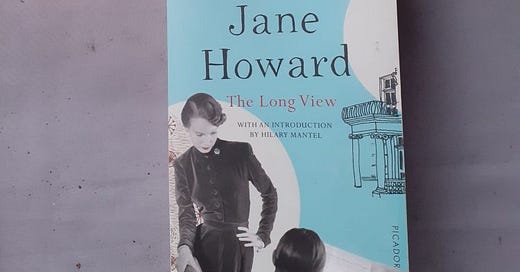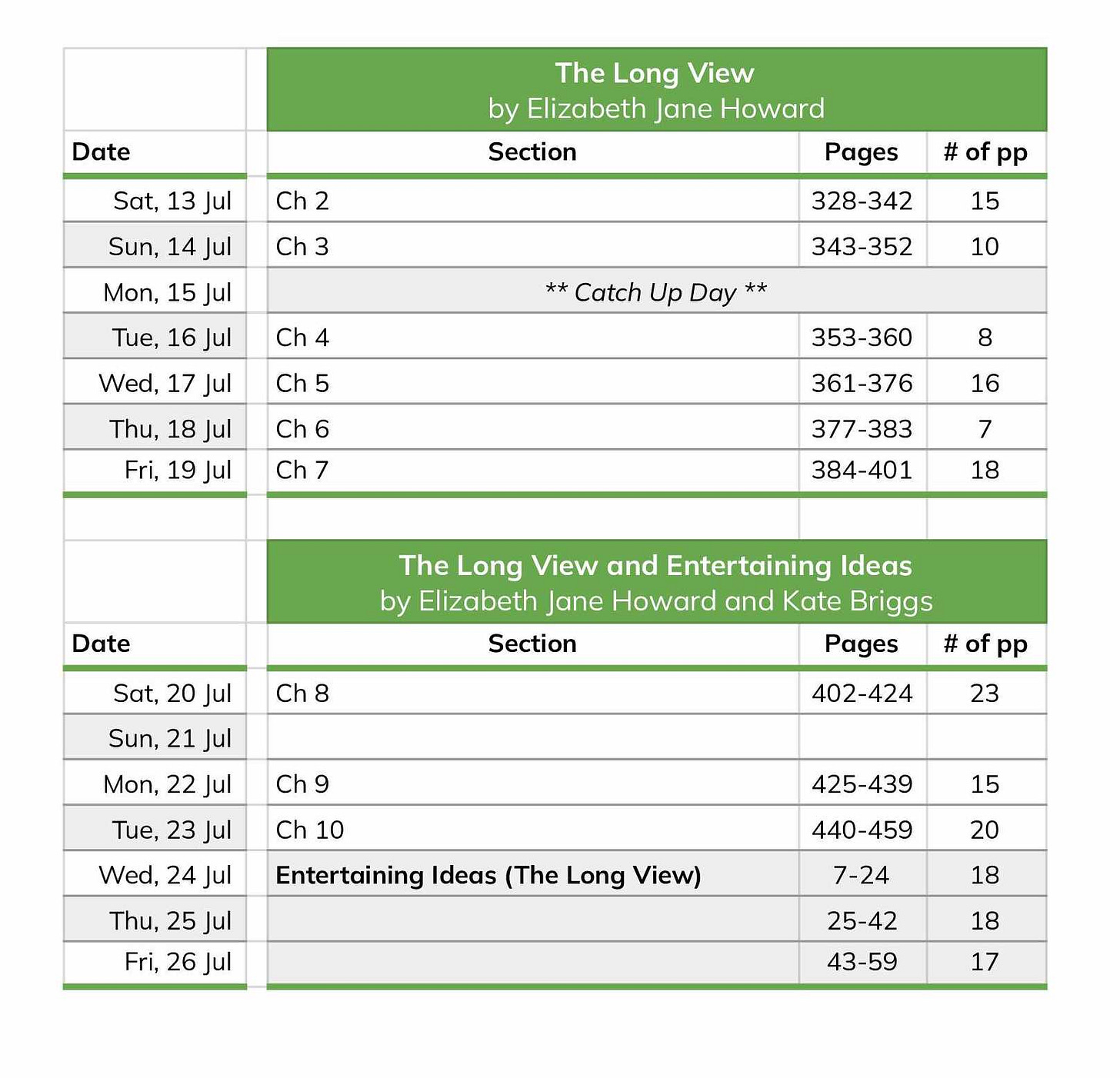Hi everyone! I hope you’re enjoying the summer so far and getting in a lot of great reading. I don’t know about you, but I feel like Elizabeth Jane Howard’s The Long View is perfect summer reading — absorbing, deep but not difficult, full of insights into human character, and entertaining without in any way feeling light or superficial. I’m loving it!
This newsletter will be brief. I have three items for you.
First, we would like to hold another video call to discuss The Long View and Entertaining Ideas. If you are at all interested in participating in the next call, even a little bit, please fill out this survey by Tuesday, July 16th, to let us know what dates and times work best for you. We will schedule the meeting when the most people are available. Our last three meetings have been such fun — please consider joining us! Everyone is welcome, no matter how much or how little of the reading you have done. If you haven’t read a word of either of these books, you are still very much welcome! We will discuss the next stage of the project as well, our group reading of The Long Form and How to Live Together.
Next, here’s a photo from Adam James Smith:
Finally, here is the reading schedule for the rest of #KateBriggs24 Part 2:
Want more information on this project? You’ll find it at Kim’s McNeill’s website.
And that’s it! Let us know how your reading is going. We hope to see you soon!
As always, thank you all for your company and your comments.
Rebecca and Kim







I completely agree with Rebecca about The Long View being perfect summer reading. I also loved it, and finished a couple of weeks ago since I couldn't stop reading. I've been thinking about the many sadnesses of the book—in particular, the way Antonia's deep connection with the natural world, when she's younger/at the end, seems to have faded into almost nothingness by the beginning/her middle age. In the final section, when she's young, she's so present to the more-than-human (her horse; the landscape she rides through and has such intimacy with; the garden, in particular the strawberries; the weather), but in the beginning/towards the middle of her life that's all been lost. In the opening sections there's almost no setting that's not inside a house or some other building; even when she's in the south of France the natural world is more backdrop to her experiences, less a living presence. It feels described rather than inhabited in a bodily way (and I'm guessing this is deliberate—I don't mean it as a criticism of EJH). This loss (of connection and delight and relationship with non-human beings) is obviously one of many losses, not so much foregrounded by Elizabeth Jane Howard, but very real and painful. The backwards-ness of the book also fascinated me, as did Kate Briggs' discussion of it (and her whole essay really). I read the essay after finishing the book and was blown away, as I seem to be by all things KB. Looking forward very much to discussing both!